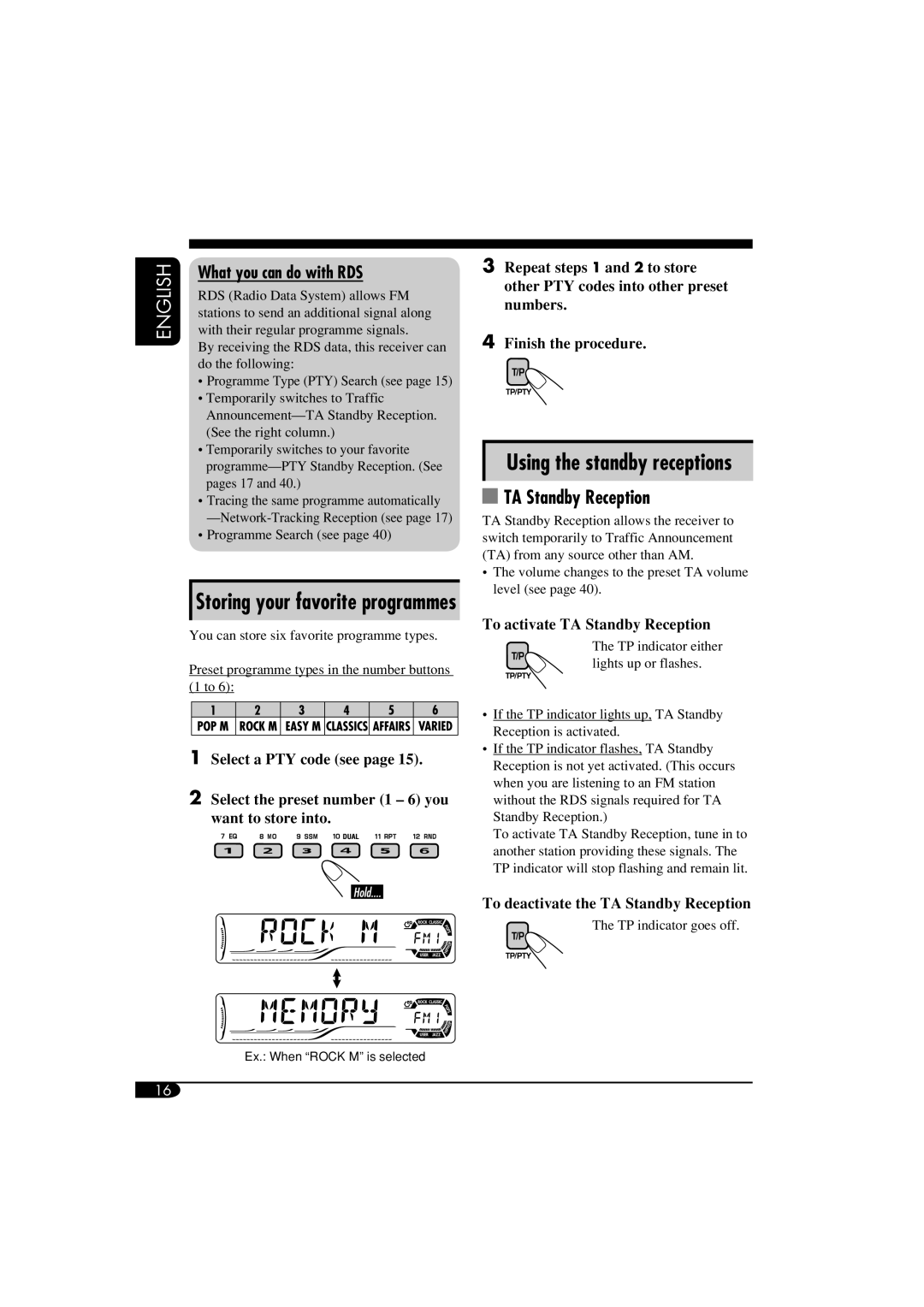
ENGLISH | What you can do with RDS |
| |
| RDS (Radio Data System) allows FM |
| stations to send an additional signal along |
| with their regular programme signals. |
| By receiving the RDS data, this receiver can |
| do the following: |
| • Programme Type (PTY) Search (see page 15) |
| • Temporarily switches to Traffic |
| |
| (See the right column.) |
| • Temporarily switches to your favorite |
| |
| pages 17 and 40.) |
| • Tracing the same programme automatically |
| |
| • Programme Search (see page 40) |
Storing your favorite programmes
You can store six favorite programme types.
Preset programme types in the number buttons (1 to 6):
1 Select a PTY code (see page 15).
2 Select the preset number (1 – 6) you want to store into.
3Repeat steps 1 and 2 to store other PTY codes into other preset numbers.
4Finish the procedure.
Using the standby receptions
 TA Standby Reception
TA Standby Reception
TA Standby Reception allows the receiver to switch temporarily to Traffic Announcement (TA) from any source other than AM.
•The volume changes to the preset TA volume level (see page 40).
To activate TA Standby Reception
The TP indicator either lights up or flashes.
•If the TP indicator lights up, TA Standby Reception is activated.
•If the TP indicator flashes, TA Standby Reception is not yet activated. (This occurs when you are listening to an FM station without the RDS signals required for TA Standby Reception.)
To activate TA Standby Reception, tune in to another station providing these signals. The TP indicator will stop flashing and remain lit.
To deactivate the TA Standby Reception
The TP indicator goes off.
Ex.: When “ROCK M” is selected
16
